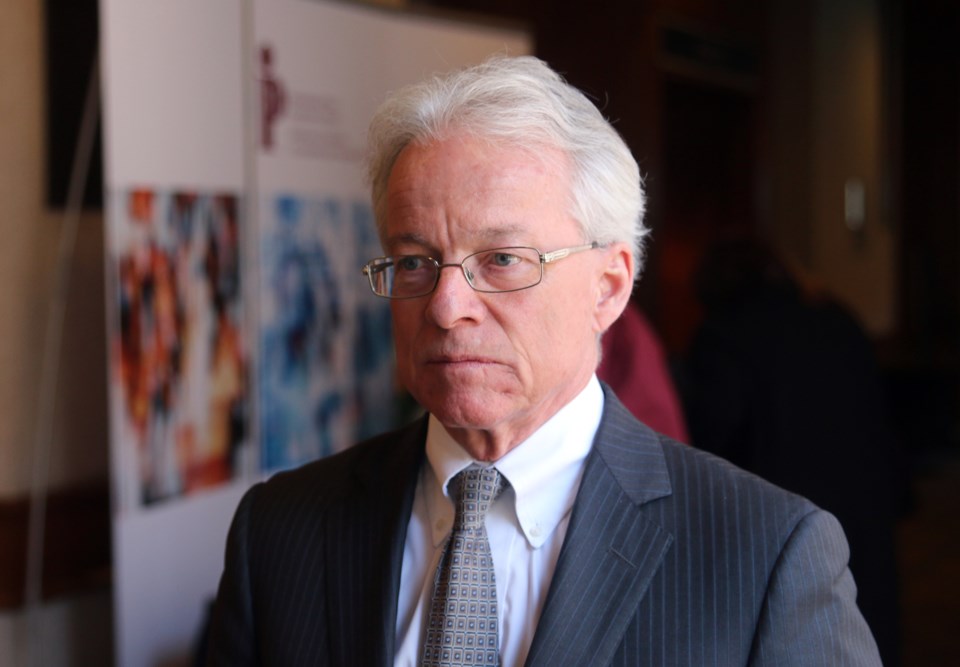THUNDER BAY - More and more people are submitting freedom of information requests than ever before, but the information and privacy commissioner says provincial legislation could make it easier for municipal governments to keep the public in the dark.
Brian Beamish was in Thunder Bay on Wednesday as part of the organization's Reaching Out to Ontario program, updating various communities about developments at the office of the IPC and policies relating to information and privacy.
Beamish said freedom of information requests have steadily increased over the last 20 years.
In 2016, there were more than 68,000 FOI requests, while in 1991 that number was closer to 20,000. Beamish said the number of requests has increased by roughly five per cent a year.
“I think there is an increasing awareness on the part of the public that there is a freedom of information act and they can put in a request to the government and the government must respond to that request,” Beamish said of the increase.
“People are becoming more and more aware and taking advantage of the act and seeing the success of taking advantage of the act. People are getting information from the government when they put in freedom of information requests.”
Despite the growing number of FOI requests, Beamish said he is concerned about access to information at the municipal government level. Proposed changes to the municipal act through amendments in Bill 68 could make it easier for municipal councils to discuss more issues in closed meetings.
“I think if the circumstances where councils can go into closed meetings are increased, there will be councils that take advantage of that,” Beamish said. “My concern on that is twofold. One is that I think business of government should be conducted in the open as much as possible. The second is the fear that the information discussed in a closed meeting will not be available when people put in a freedom of information request and therefore the public’s access to information will be eroded.”
Amendments in Bill 68, which passed its second reading at Queen’s Park in March and is now before the standing committee, would broaden the scope of subjects discussed by municipal councils or local boards during closed meetings.
The IPC argues the amendments would keep the public from participating in local government and would negatively impact the public’s right of access to records through freedom of information requests.
“We lobbied the government against that,” Beamish said. “We thought it was unjustified. There was no evidence that that information should be taken out of the public sphere. We haven’t seen a change in that law and we are hopeful that something might happen in that area.”
Nipigon Mayor Richard Harvey was at the IPC meeting in Thunder Bay and he said he supports the amendments in Bill 68, saying they provide clarity for municipal councils.
“What this has done is clarify how the process works,” Harvey said. “This has laid out the guidelines that here are specific incidents where you can go in camera. Things before were not clearly identified.”
According to Harvey, issues discussed during closed meetings mostly involve funding agreements that will be made public anyway and are discussed in camera at the request of the provincial or federal government.
“We need to discuss and get the details worked out, but the provincial or federal government is specifically asking at this point to keep this in confidence, and the only way you can do that, is to go in camera,” he said. “These are all issues that will eventually become public.”
Harvey added that it is important to have a balance between transparent government and respecting individual privacy.
“Obviously, the commissioner has his position, has his opinion,” he said. “Obviously, you see that other levels of government recognize the difficulty and have a different position and their position has moved forward.”
